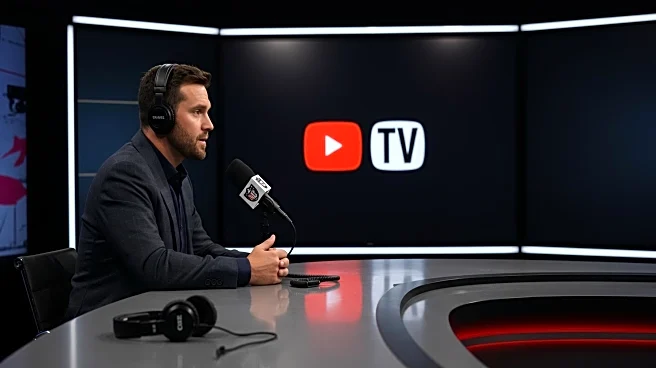What is the story about?
What's Happening?
Derek Carr, a former NFL quarterback, has announced his retirement from professional football after a career spanning over 11 years. Carr, who was set to begin his third season with the New Orleans Saints, decided to retire due to a torn right labrum and significant degenerative changes to his rotator cuff. Throughout his career, Carr accumulated 41,245 passing yards, 257 touchdowns, and 112 interceptions. Following his retirement, Carr has transitioned to a new role as a studio analyst for YouTube TV, where he will cover a Week 1 game between the Kansas City Chiefs and Los Angeles Chargers. Carr's former teammate, Tyrann Mathieu, will also join him as an analyst for the same game.
Why It's Important?
Carr's retirement marks a significant shift in his career, impacting both the Saints and the broader NFL community. His decision to retire early, forfeiting $30 million, reflects the physical toll of professional football and the difficult choices athletes face regarding their health. Carr's move to YouTube TV highlights the growing trend of athletes transitioning to media roles, leveraging their expertise to provide insights into the game. This shift could influence how sports media evolves, with more athletes potentially following suit, enhancing the quality of sports analysis available to fans.
What's Next?
As Carr embarks on his new career as an analyst, he will likely draw on his recent experience in the NFL to provide in-depth commentary and analysis. His insights could offer viewers a unique perspective on the strategies and dynamics of the game, particularly given his familiarity with the teams involved. Additionally, Carr's brother, David Carr, who is an analyst for NFL Network, may provide guidance and support as Derek navigates this new role. The success of Carr's transition could pave the way for other retired athletes to explore similar opportunities in sports media.
Beyond the Headlines
Carr's transition from player to analyst underscores the broader cultural shift in how athletes are perceived post-retirement. It highlights the importance of career planning for athletes, who often face challenges in finding new roles after their playing days are over. This move also reflects the increasing value placed on firsthand experience and knowledge in sports broadcasting, potentially leading to more authentic and informed sports coverage.














